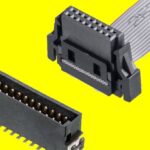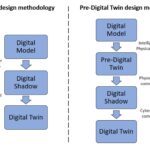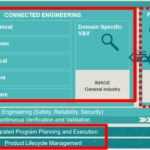 NXP Semiconductors has developed a solution to connect its high-voltage battery management system (HVBMS) through its S32G GoldBox vehicle networking reference design to the cloud to leverage an artificial intelligence (AI) powered battery digital twin. By utilizing Electra Vehicles, Inc.’s EVE-Ai 360 Adaptive Controls technology, NXP unleashes the power of digital twin models in the cloud to better predict and control the physical BMS in real-time, to improve battery performance, battery state of health of up to 12% and enable multiple new applications, such as EV fleet management. NXP will showcase a demo of the solution at this year’s electronica in Munich.
NXP Semiconductors has developed a solution to connect its high-voltage battery management system (HVBMS) through its S32G GoldBox vehicle networking reference design to the cloud to leverage an artificial intelligence (AI) powered battery digital twin. By utilizing Electra Vehicles, Inc.’s EVE-Ai 360 Adaptive Controls technology, NXP unleashes the power of digital twin models in the cloud to better predict and control the physical BMS in real-time, to improve battery performance, battery state of health of up to 12% and enable multiple new applications, such as EV fleet management. NXP will showcase a demo of the solution at this year’s electronica in Munich.
As batteries continue to be the costliest element in an electric vehicle (EV), AI-powered digital twin cloud services have a high potential to improve estimations of the battery’s state of health (SOH) and state of charge (SOC) for improved efficiency, lifetime, and cost. Battery digital twins adapt to ongoing changes in battery health due to operating conditions and provide updated figures back to the BMS for continuously improving control decisions.
Carmakers can use the technology to provide driver insights, such as range and speed recommendations. In addition, adaptive battery control can improve the battery’s performance and safely extend its lifespan, reducing warranty costs for the carmaker. Another potential application is EV fleet management, providing fleet operators with invaluable usage insights, such as vehicle charging times and battery predictive diagnostics. Battery care centers can also use this in-depth information to reduce downtimes with rapid diagnostics, and EV charging station operators can effectively optimize their charging service and energy efficiency.
As the EV market grows, so will the supply of second-life batteries. Although they may have reached the end of their ‘automotive life’, these batteries have a significant residual capacity of up to 80%. Tapping into that remaining useful battery life (RUL) in energy storage systems (ESS) for homes has the potential to reduce homeowners’ energy bills.
The AI-powered battery digital twin solution with Electra Vehicles, Inc. offers a performance advantage thanks to highly accurate sensors, real-time closed-loop control of the BMS, and network connectivity combined with predictive algorithms. The solution comprises three elements.
NXP’s S32K3-based HVBMS Reference Design offers high precision and accuracy to extend battery life safely. Having precise measurements of the battery’s SOH and SOC leverages the full potential of the battery and thus maximizes driving range with accurate diagnostics.
The second element is NXP’s S32G-based vehicle networking processing solutions. NXP GoldBox offers safe high-performance computing capacity and real-time network performance with secure cloud connectivity for data-driven cloud-based automotive services. NXP is collaborating with Electra Vehicles, Inc., a leader in AI-based onboard battery controls, data analytics, and design, for the third and final element of the digital twin solution, which is to implement its EVE-A adaptive digital twin and connect its electrification solutions seamlessly to the cloud.
Electra’s EVE-Ai architecture processes the data to identify cycles (time series) and extracts features both at the battery and vehicle levels. The adaptive cell modeling system technology then dynamically selects the most appropriate model for a specific user profile.
NXP will showcase a demo at electronica 2022 in Munich, of how AI can improve electric vehicle battery performance when EVs, equipped with Electra’s EVE-Ai, are connected through the cloud to AI-powered battery digital twins. Find out more at booth #C2 578.






